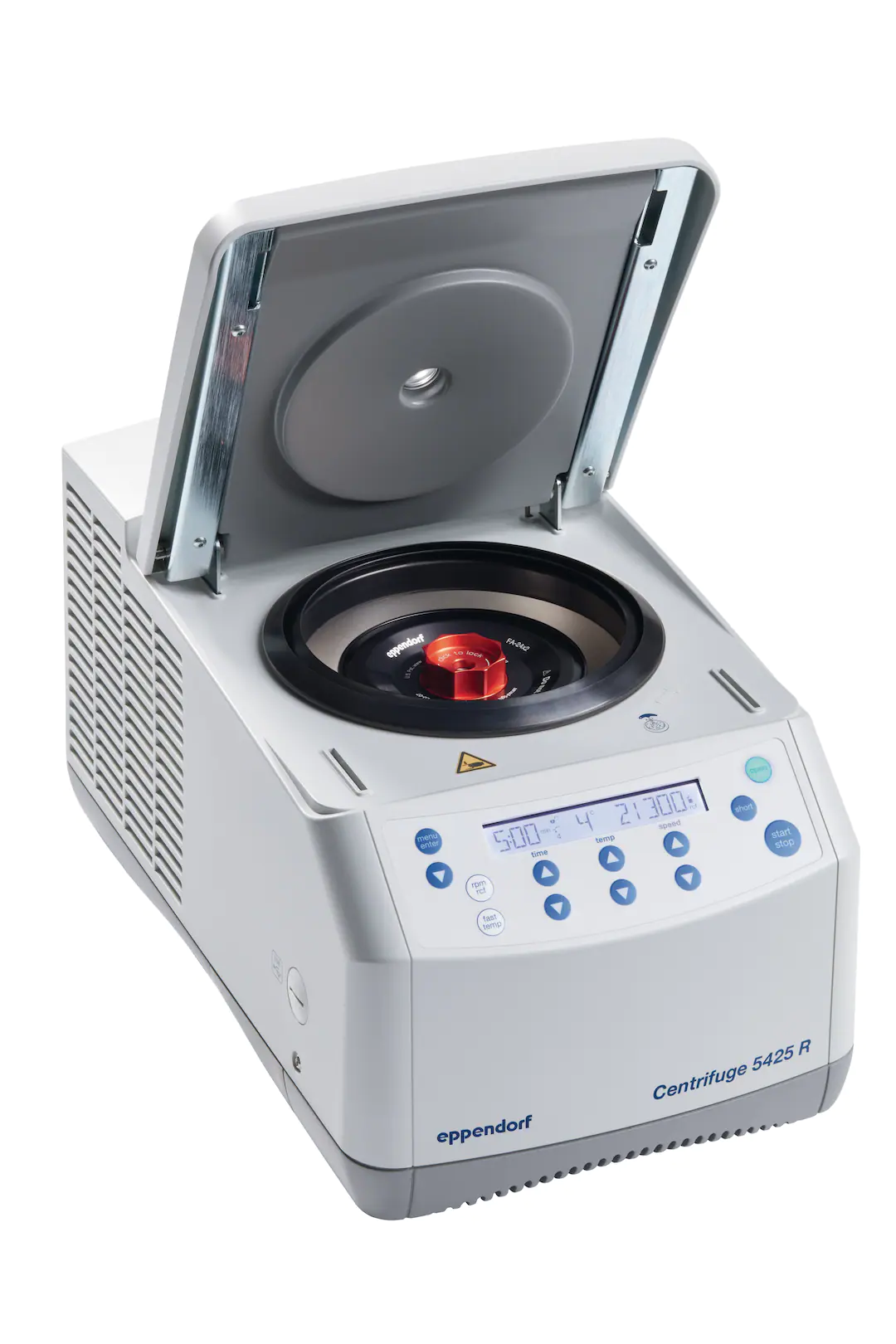

The Eppendorf microcentrifuges models 5425R are true laboratory standards. When processing temperature-sensitive samples, the Centrifuge 5425 R provides precise temperature control with its advanced cooling system.
- Maximum speed, rpm – 15,060 (21,300g);
- maximum capacity, ml — 10×5 (FA-10×5 rotor);
- timer – from 10 sec to 9:59 h, continuous operation;
- start the timer after reaching the set speed;
- cooling;
- 10 acceleration and deceleration speeds;
- electronic recognition of imbalance;
- acceleration / deceleration time, s – 15/15;
- available rotors, pcs — 6;
- digital display;
- height with open lid, mm – 480;
- power, W – 280;
- dimensions, W × D × H, mm – 240 × 390 × 240;
- weight (without rotor), kg – 15.6.
PRODUCT DESCRIPTION
Micro centrifuges – compact benchtop centrifuges for 0.2 ml, 1.5/2 ml and 5 ml Eppendorf tubes, PCR strips, spin columns, with a maximum rotor capacity of 6 to 48 tubes, with an acceleration of up to 25 000 g. Basically, these centrifuges are equipped with fixed-angle rotors (so-called angular). There are centrifuges with both a single rotor available and a wide selection of rotors. There are unique rotors – for PCR plates, a bucket rotor for 1.5 ml tubes, a rotor for spin columns (centrifugation of tubes with open lids).
Base models have no programming capability – only start at maximum acceleration and stop at shutdown. Digitally controlled centrifuges can be programmed for the desired acceleration, centrifugation time, and, depending on the model, set the cooling to a certain temperature. The presence of a cooling function in the centrifuge allows you to centrifuge temperature-sensitive samples.
To select a centrifuge for your tasks, you need to pay attention to the following characteristics: what centrifugal acceleration (g) is required by the protocol; what volume of tubes is planned to be centrifuged; centrifuge capacity; whether refrigeration is required during centrifugation; the possibility of programming; whether the rotor is required to be aerosol-tight.

